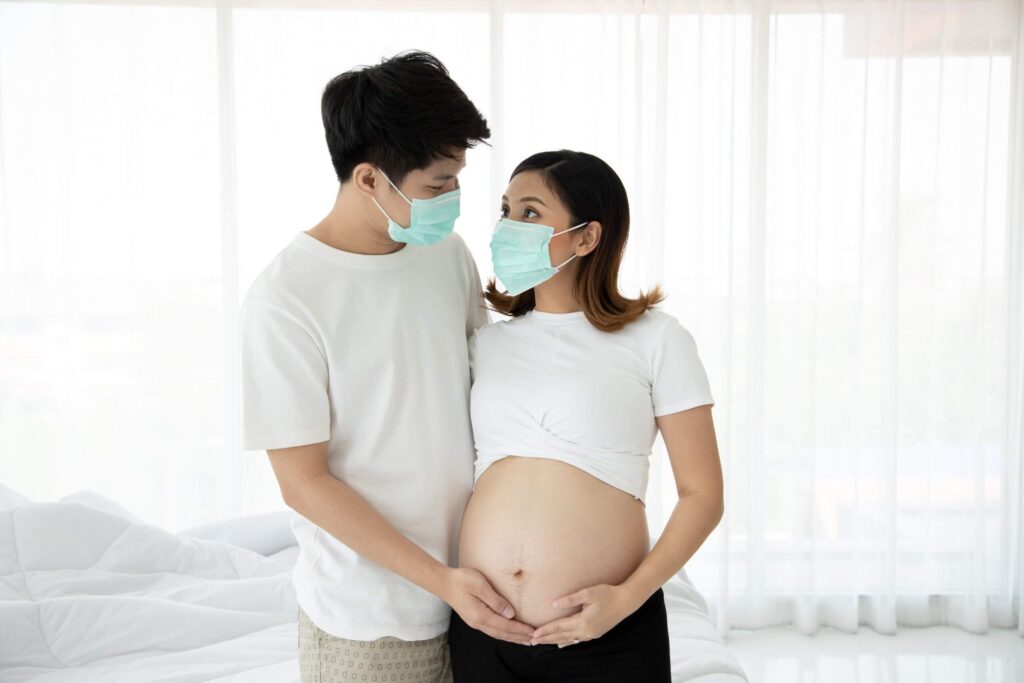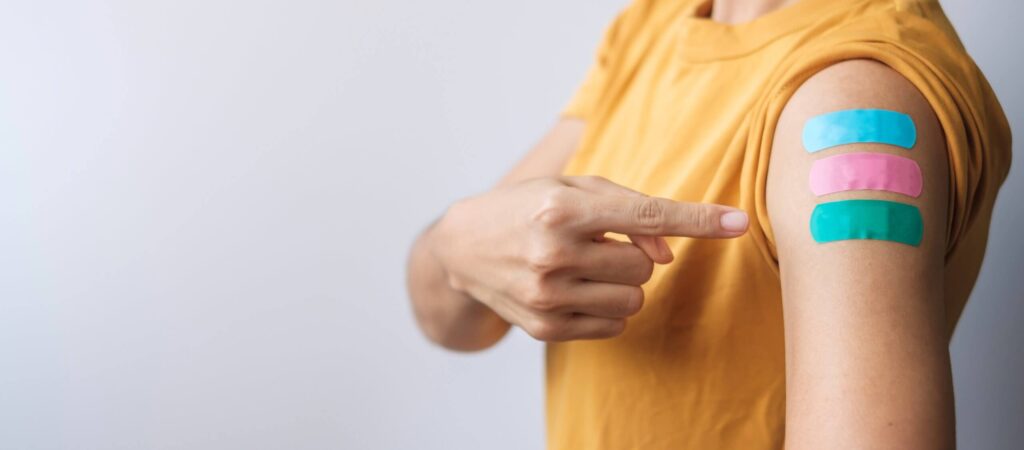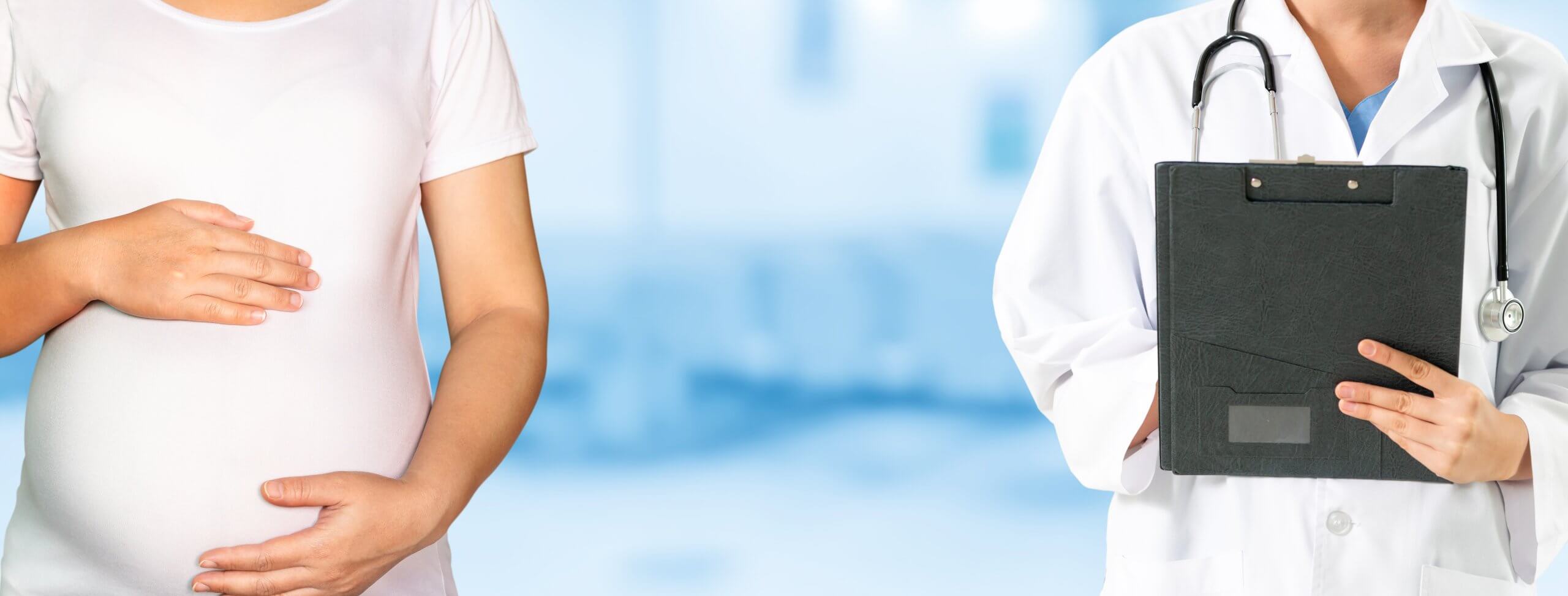Why should pregnant women be vaccinated?
Whilst it is true that the majority of pregnant women who contract Covid-19 have a mild or asymptomatic infection with little or no harm to their pregnancies, having a serious Covid-19 infection is much more likely in pregnant women compared to women who are not pregnant. 10% of pregnant women with Covid-19 will develop a severe or critical infection. With that comes increased risks of preterm birth, preeclampsia, intubation, ICU admission and death. Although the overall risk of maternal death is still low, it is 20 times higher in pregnant women with Covid-19. These risks were higher still for pregnant women with underlying health conditions such as obesity, high blood pressure and diabetes.

What factors should I take into consideration when deciding if I should be vaccinated during my pregnancy?
The evidence for the benefits of vaccination against Covid-19 in pregnancy in order to avoid serious infection and poor outcomes as detailed above, is clear. Data on the safety of Covid-19 vaccines in pregnancy has recently become available and is providing increasing reassurance that the benefits of vaccination in countries with high rates of Covid-19 infection is in favour of vaccination of pregnant women. As such, advice from those responsible for maternal and neonatal health in the USA, U.K. and most European countries is that pregnant women should consider Covid-19 vaccination.
However, the situation in Hong Kong is different to many other countries as our infection rates have remained incredibly low and so pregnant women here may wonder where they stand in the risk versus benefit analysis. We can now say with more confidence since the emergence of this safety data, that we strongly encourage pregnant women who are planning to travel during their pregnancy or immediately after delivery to a country with a high prevalence of Covid-19 to be vaccinated. We also encourage vaccination of pregnant women with underlying health conditions, given their increased risk of severe adverse outcomes with Covid-19 infection. This is the safest approach for both mothers and their babies.
If neither of these situations apply to you but you are pregnant and are considering being vaccinated, then the data suggests that it is safe, and that you will not be harming your pregnancy or baby if you were to have the vaccine whilst pregnant. If anything, you may be boosting your baby’s immunity to Covid-19. Despite the reassuring safety data, waiting until after delivery seems more nuanced but it is important to bear in mind that the Covid-19 situation in Hong Kong has the potential to change rapidly. If you are hesitant, it would be worth discussing your individual circumstances with your obstetrician or GP so that we can give you tailored advice.

What data is there on Covid-19 vaccine safety in pregnancy?
Over 30,000 pregnant women have received the mRNA vaccine so far in the USA. Roughly half have had the Pfizer vaccine and half the Moderna. Analysis of the outcomes from a proportion of these women that were followed up until they had completed their pregnancies, has shown that their pregnancy outcomes are similar between those that were vaccinated and the rest of the pregnant population; the Covid-19 vaccine was not associated with a higher risk of complications. In addition, reactions and side effects such as fatigue, fever, muscle aches and pain at the injection site were similar between pregnant recipients and non-pregnant ones.
Do Covid-19 vaccinations work in pregnancy?
Yes. A study has looked at antibody levels in vaccinated pregnant and lactating women and compared them to non-pregnant women and women who had a natural Covid-19
infection. Pregnant and breastfeeding women developed a strong immune response, stronger than that achieved from natural infection. They also analysed the cord blood and breast milk and found that these antibodies transfer to the unborn foetus and new-born, meaning that babies are likely to have some natural protection if their mothers are vaccinated in pregnancy or during breastfeeding. They did find though, that the levels of antibodies the babies had was lower if the mother had received only 1 vaccination in pregnancy so if you do have the vaccination in pregnancy, it would be wise to do so with sufficient time to have both vaccines and have at least an additional 2 weeks before delivery to ensure the maximum level of antibodies are transferred to your baby.
Should breast feeding women get vaccinated?
Yes. This has been found to be safe and means the new-born will benefit from passive immunity from the mother’s antibodies which will pass to her breastmilk.
Which vaccine should pregnant women get and when?
The vast majority of the available data on Covid-19 vaccination in pregnancy comes from the USA and Israel, where tens of thousands of women have been vaccinated with the mRNA vaccines. Whilst we do not see a biologically plausible way in which the Sinovac vaccine would cause harm to a developing foetus (it is an inactivated vaccine; technology that has been used since vaccines were first developed 100 years ago), we do not have the evidence to support this. Therefore, we would advise pregnant women receiving a Covid-19 vaccine to have an mRNA vaccine, which in HK would be the Pfizer-BioNTech.
We would suggest that women are vaccinated in their second trimester or early 3rd trimester. This avoids the possibility of the common problems in the first trimester being falsely attributed to Covid-19 vaccination, as well as confusing labour symptoms if the vaccine is given in late 3rd trimester. If someone is already in their 3rd trimester it is reasonable to wait till after delivery to get vaccinated.
Should women planning a pregnancy get vaccinated?
Yes. As discussed above, the risks for Covid-19 infection in pregnancy are much higher and so it makes sense to protect against infection before you become pregnant. It is so unfortunate that the unsubstantiated rumour regarding the Covid-19 vaccine affecting fertility has been so widely circulated, sewing seeds of doubt for so many women. This rumour came from a group who postulated that because there is a protein on the placenta that has a small structural similarity to the Covid-19 spike protein, that this would cause an immune response directed at a developing placenta. This is simply untrue and not born out of evidence. Tens of thousands of women who are pregnant and many more who have gone on to become pregnant have had the vaccine; there has been no increase in rates of miscarriage or subfertility.







